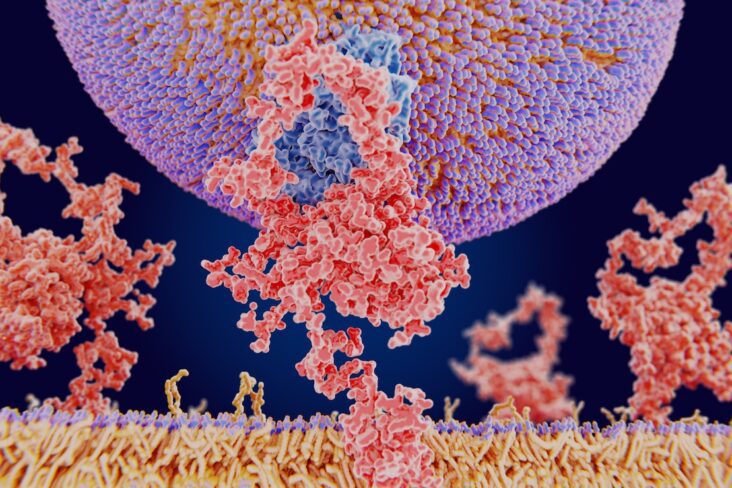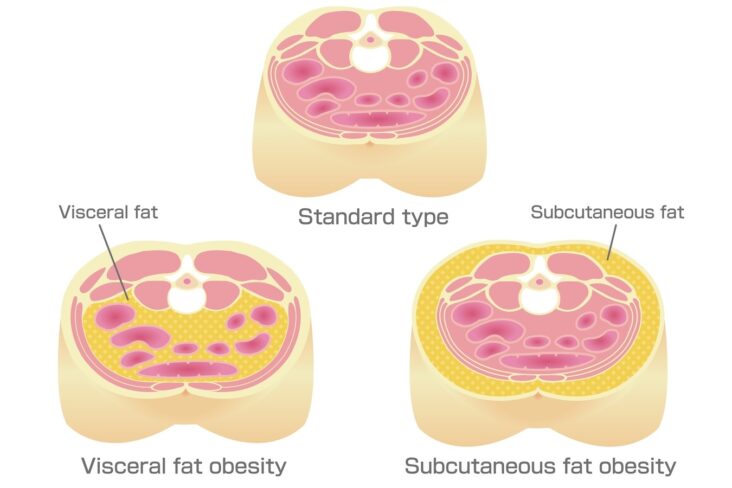
You can read or listen (see podcast construct beneath) to this article authored by Dr Edward Leatham, Consultant Cardiologist
Tags: GLP-1, CGM, Glucose, Mounjaro, Wegovi, Ozempic, Podcast search website using Tags to find related stories.
Why Our Bodies Struggle in the Modern World—And How GLP-1 Medications Can Help
Our ancestors survived harsh conditions—ice ages, famines, infections—by adapting in remarkable ways. Over thousands of years, the human body developed clever survival traits: it became excellent at storing fat, conserving energy, and mounting strong immune responses during times of illness or food shortage. These traits were life-saving in an unpredictable and dangerous world.
But here’s the catch: those same traits are still in our genes today, even though our environment has completely changed. We no longer face global food scarcity or need to conserve energy just to survive the winter. Instead, we live in a world of constant access to food, more sitting than moving, and much longer lifespans. What once helped us survive can now work against us.
Scientists call this idea the “thrifty gene hypothesis.” It suggests that certain genetic patterns—like those that help the body store fat or hold onto sugar—were once helpful, but today contribute to weight gain, diabetes, and heart disease. For example, many people inherit versions of genes that raise LDL (or “bad”) cholesterol or encourage the body to store more fat. Others have gene variants, such as those affecting a protein called CHC22, which can influence how well their cells manage blood sugar.
These inherited traits don’t cause problems right away. In fact, before the 1800s, when most people lived only into their 30s, they may never have caused problems at all. But now that people routinely live into their 70s and 80s, those old survival traits have more time to cause issues. They increase the risk of obesity, diabetes, cardiovascular disease, and even some cancers and dementia.
So what can we do about it?
This is where GLP-1 mimetics come in. These are modern medications that imitate a natural hormone in your body called GLP-1 (glucagon-like peptide-1), which helps regulate your appetite and blood sugar. Medications like semaglutide (Ozempic) and tirzepatide (Mounjaro) can reduce hunger, improve glucose control, and help people lose weight.
But while these medications are powerful, they’re not a magic fix. Our genes may set the stage, but our lifestyle choices—what we eat, how active we are, how well we sleep—play just as big a role. That’s why, at the GLP-1 Mimetic Clinic, we don’t just hand out prescriptions. We provide a complete programme of support, combining the latest treatments with personalised advice on nutrition, exercise, and self-care.
Because true health isn’t just about medicine—it’s about partnership. Between you, your body, and your care team. Between science and daily life.
The Modern Metabolism: What’s Going Wrong
Your metabolism isn’t just about burning calories. It governs how your body processes cholesterol, regulates blood glucose, responds to insulin, and stores fat. When metabolic function breaks down, the consequences ripple across every system in the body.
It’s well established that diabetes—both insulin-dependent and type 2—is a major risk factor for heart disease, dementia, and even some cancers. But many people without a formal diagnosis are already living with glucose dysregulation. This can persist silently for years, often accompanied by creeping midlife weight gain and chronic inflammation—two of the most insidious contributors to age-related disease.
Poor metabolic health increases the risk of:
- Coronary atherosclerosis
- Stroke
- Cognitive decline
- Non-alcoholic fatty liver disease
- Hormonal imbalance
- Certain cancers (including breast and colon cancer)
Conversely, preserving good metabolic control enhances vitality, brain health, and mobility well into older age. Importantly, metabolic health is modifiable—and increasingly measurable, thanks to innovations like continuous glucose monitors (CGMs), digital food tracking apps, and DEXA scans.
GLP-1 Mimetic Therapies: What They Are and How They Help
GLP-1 (glucagon-like peptide-1) is a hormone released in the gut in response to food. It plays a key role in regulating blood sugar, slowing gastric emptying, and signalling fullness to the brain. GLP-1 mimetics harness this natural hormone’s effects, leading to:
- Reduced appetite and calorie intake
- Improved glucose control
- Weight loss
- Decreased insulin resistance
- Lower cardiovascular risk
Medications like semaglutide and tirzepatide are highly effective—some patients lose 10–15% of their body weight. But their benefits extend beyond the scales. Clinical trials have shown reductions in cardiovascular events and improvements in key metabolic markers. Tirzepatide which is a dual agonist and contains both GLP-1 and GiP- gastric inhibitory polypeptide hormones. GiP is an incretin hormone which compliments GlP-1 action. It lowers glucose level after eating by increasing insulin production/sensitivity in response to glucose load. This helps in a particular set of patients who have diabetes or glucose dysregulation.
At our Metabolic and Cardiometabolic Clinic, GLP-1 therapy is tailored to the individual. We specialise in treating people with heart disease, many of whom have weight and glucose dysregulation—but as a centre for wellness and longevity, we also increasingly support off-label use for longevity, healthspan improvement, and prevention.
Our Shared Care Approach: Medication + Lifestyle Change
GLP-1 therapy is most effective when paired with sustainable lifestyle improvements. That’s why our GLP-1 mimetic clinic operates on a shared care agreement—we commit to providing access to these powerful medications, while you commit to making meaningful changes in diet, exercise, sleep, and stress management.
To support this, we provide:
- A personalised medication booklet to track your weight, waist circumference, and dose schedule.
- Structured consultations with senior nurse practitioners and consultants.
- Ongoing lifestyle guidance based on the latest evidence in metabolic science.
- A metabolic toolkit – modern tools to support each patient journey
This isn’t just about weight loss. It’s about reversing visceral fat gain, restoring metabolic flexibility, and building a foundation for healthy ageing.

Your First Appointment: Setting the Foundations
At your initial consultation, we’ll guide you through a structured discussion designed to ensure a safe, effective, and personalised start to your treatment. Topics covered include:
1. Target Weight and Weight Loss Goals
- Agree on a realistic goal weight.
- Understand your individualised rate of weight loss.
- Typically: 1–2 kg per month.
- 2–4 kg/month may be appropriate for higher BMI patients.
- Emphasis on gradual, sustainable progress.
2. Dosing Options
- Standard versus microdosing (especially for Mounjaro with its flexible dosing pen).
- Microdosing is considered off-label, and we’ll ensure you understand both the benefits and limitations.
3. Dietary Guidance
- Increase daily protein intake to preserve lean muscle.
- Reduce high-glycaemic carbohydrates to improve insulin sensitivity.
- Aim for 2–3 litres of water daily, especially when appetite is reduced.
- Use digital meal tracking tools.
4. Exercise Recommendations
- Resistance training to combat sarcopenia (age-related muscle loss).
- Cardiovascular exercise for heart and metabolic health.
- Tailored activity plans to suit your level and preferences.
This comprehensive discussion sets the tone for your metabolic reset. Please bring your medication booklet to every appointment—it’s an essential tool for tracking progress and guiding adjustments.
Tools to Support Your Journey: Science Meets Self-Monitoring
Our patients have access to an ecosystem of smart tools and tests, designed to enhance insight, safety, and results.
The CarbR Test
- Uses continuous glucose monitors (CGMs) to measure your real-time glucose response to foods.
- Identifies your glucotype (i.e., how well you process carbohydrates).
- Detects early signs of glucose intolerance—years before diabetes develops.
- Enables precise dietary interventions to improve metabolic resilience.
Dr Shape (Food Analysis App)

Click the image above to play video of Dr Shape in action.
The AI- guided software simply involves uploading meal photos via WhatsApp for instant dietary analysis.
- Assesses macronutrient balance and portion size.
- Includes a virtual nutritional coach, that will be at your side to assist and advise
- All nutritional and weight information is fed direct into our dashboard, for your care team to monitor
- Dr Shape helps you stay accountable and on track with your nutritional targets.
DEXA Body Composition Scan
- Gold standard for tracking bone health, visceral fat, and muscle mass.
- Helps detect unwanted muscle loss during weight reduction.
- Low radiation exposure (equivalent to one day’s background radiation).
Home Body Composition Scales
- While less precise than DEXA, these allow for daily tracking.
- Useful between appointments for observing trends in body fat and muscle.
Clinical Support Services
- Exclusive access to a nurse practitioner–led helpline and FAQ portal.
- Expert guidance when questions or concerns arise.
These tools are optional and come at an additional cost—but for many patients, they dramatically improve engagement and outcomes. For more information see out Metabolic Toolkit and GLP-1 Mimetic clinic pages.

Can I Come Off GLP-1 Therapy Eventually?
One of the most common questions we hear is: Will I need this medication forever?
The answer is—not necessarily. Many patients who fully engage in the programme, commit to lifestyle changes, and reach their body composition goals may be able to safely taper off the medication.
GLP-1s are a bridge—not a crutch. They can give your body and brain a metabolic reset. But to maintain those gains, the underlying drivers—insulin resistance, inflammation, poor sleep, nutrient imbalances—must be addressed. That’s what our clinic is here to help you do.
Conclusion: Thriving, Not Just Surviving
We are no longer living in caves, hunting for food, or starving through winters. But our bodies still think we are. The genetic adaptations that once protected us are now pushing us toward chronic disease.
Thankfully, we live in a time when science has caught up. With the right tools—GLP-1 mimetics, continuous glucose monitors, DEXA scans, smart food tracking—and the right support, you can rewrite your metabolic story.
At the GLP-1 Mimetic Clinic, we believe in empowerment through evidence. Our mission is to combine state-of-the-art therapies with compassionate, personalised care. If you’re ready to reclaim control over your health, we’re here to walk that journey with you—step by step.
Call to Action
If you have heart disease, high blood pressure, MASLD-metabolic dysfunction associated steatotic liver disease ( formally known as Fatty liver) or Non-diabetic hyperglycaemia ( formally known as pre-diabetes) or are interested in learning more about our cardiovascular health checks, or initiating a one off consultation with one of our cardiologists or weight management faculty, please contact us via the enquiries portal. Let’s take this next step—together.
For other stories related to metabolic health, cholesterol, coronary heart disease, and LDL, explore the archives by entering a tag under the search function above
Related stories
- The thrifty gene hypothesis
- Metabolic thrift and the genetic basis of human obesity 2014
- Gene mutation evolved to cope with modern high-sugar diets
- GLP-1 agonists – too good to be true?







